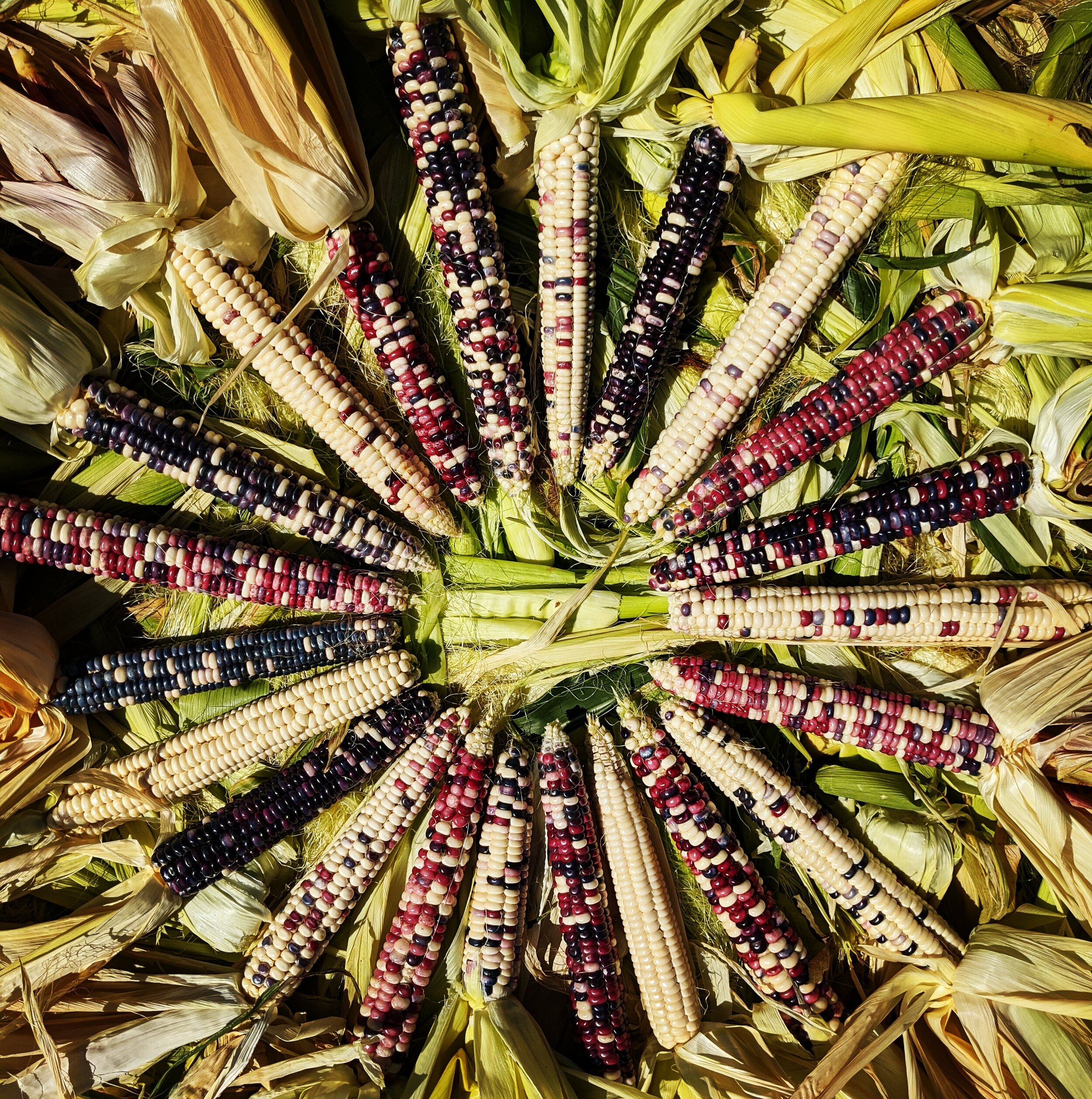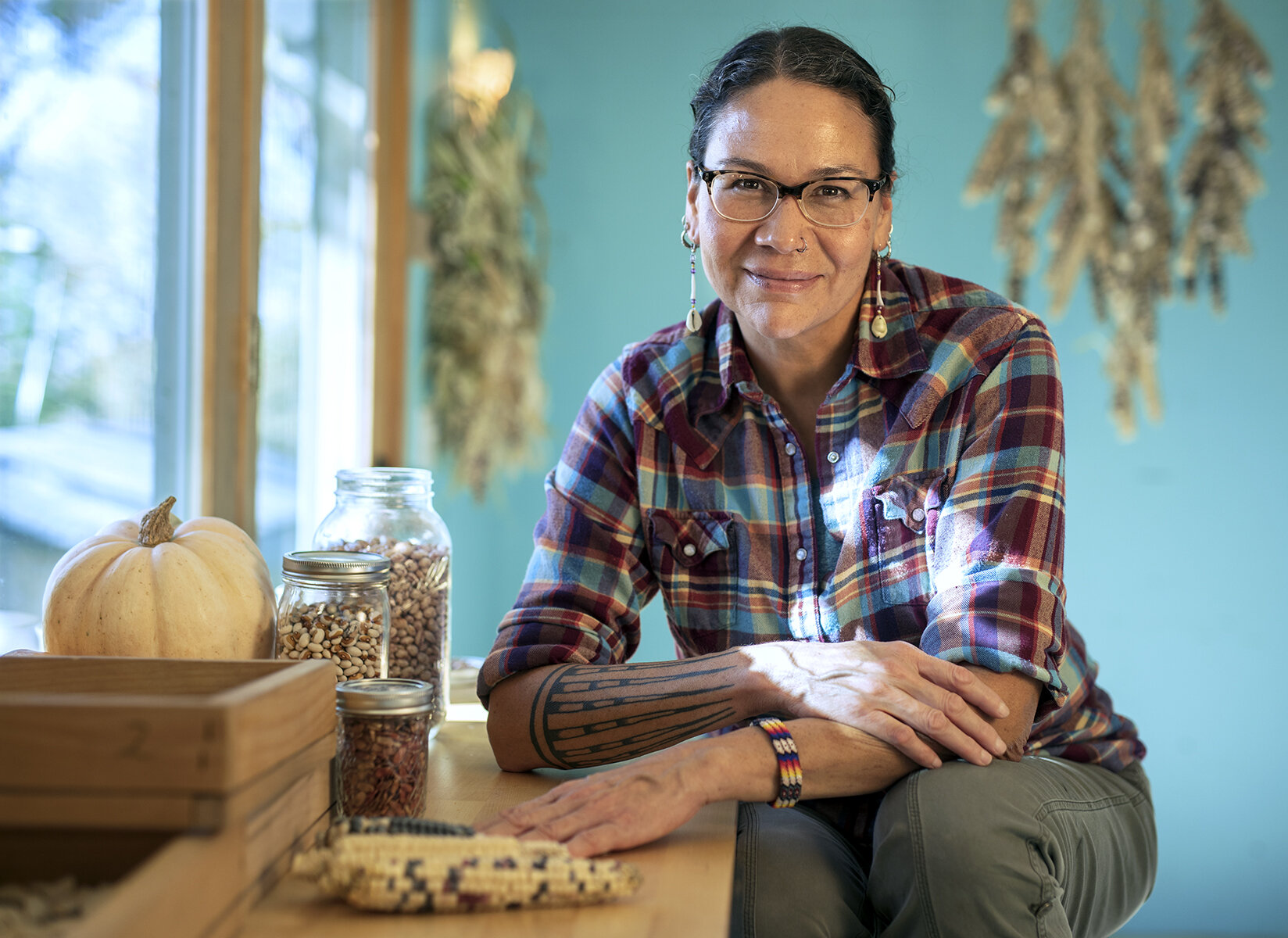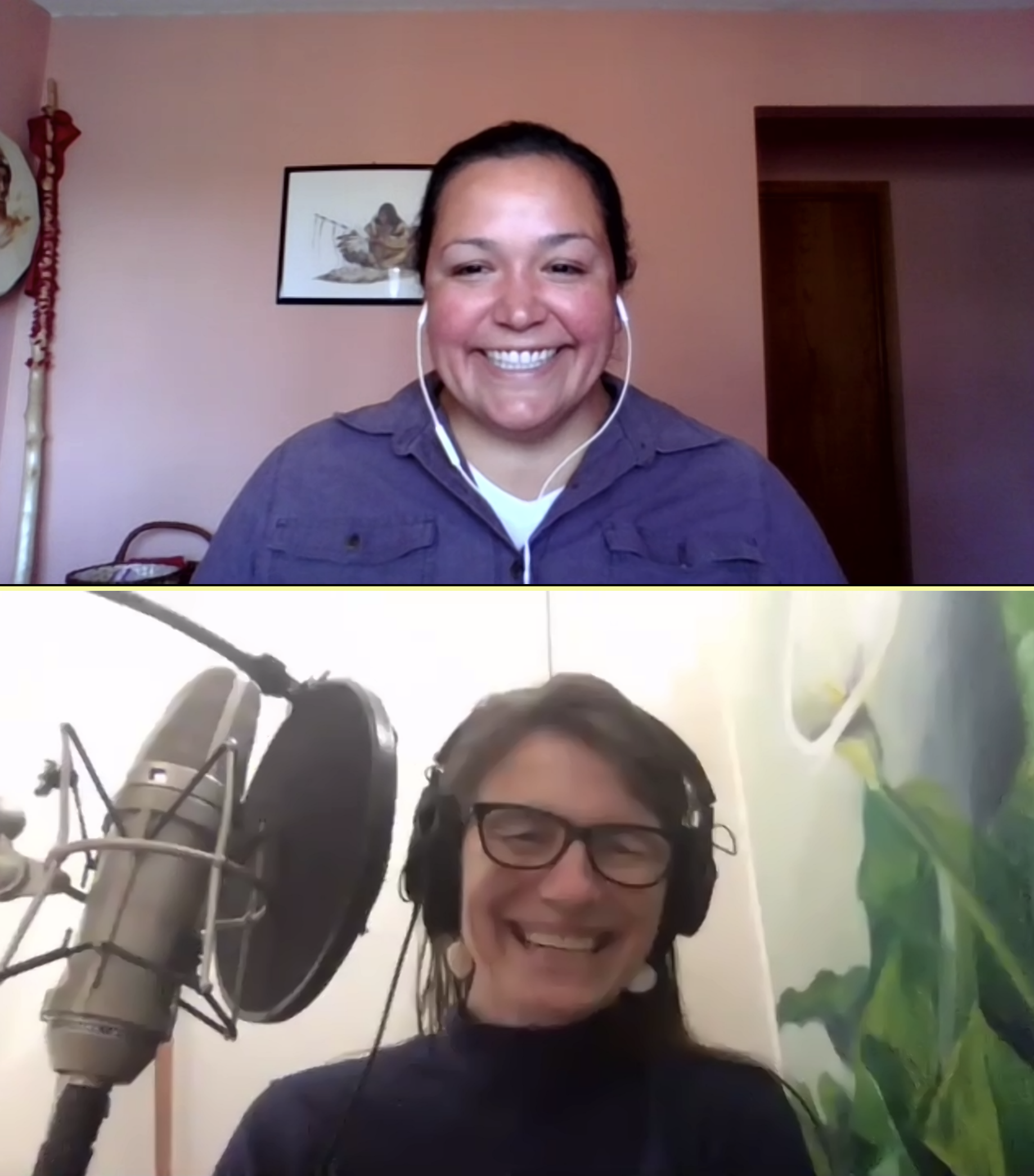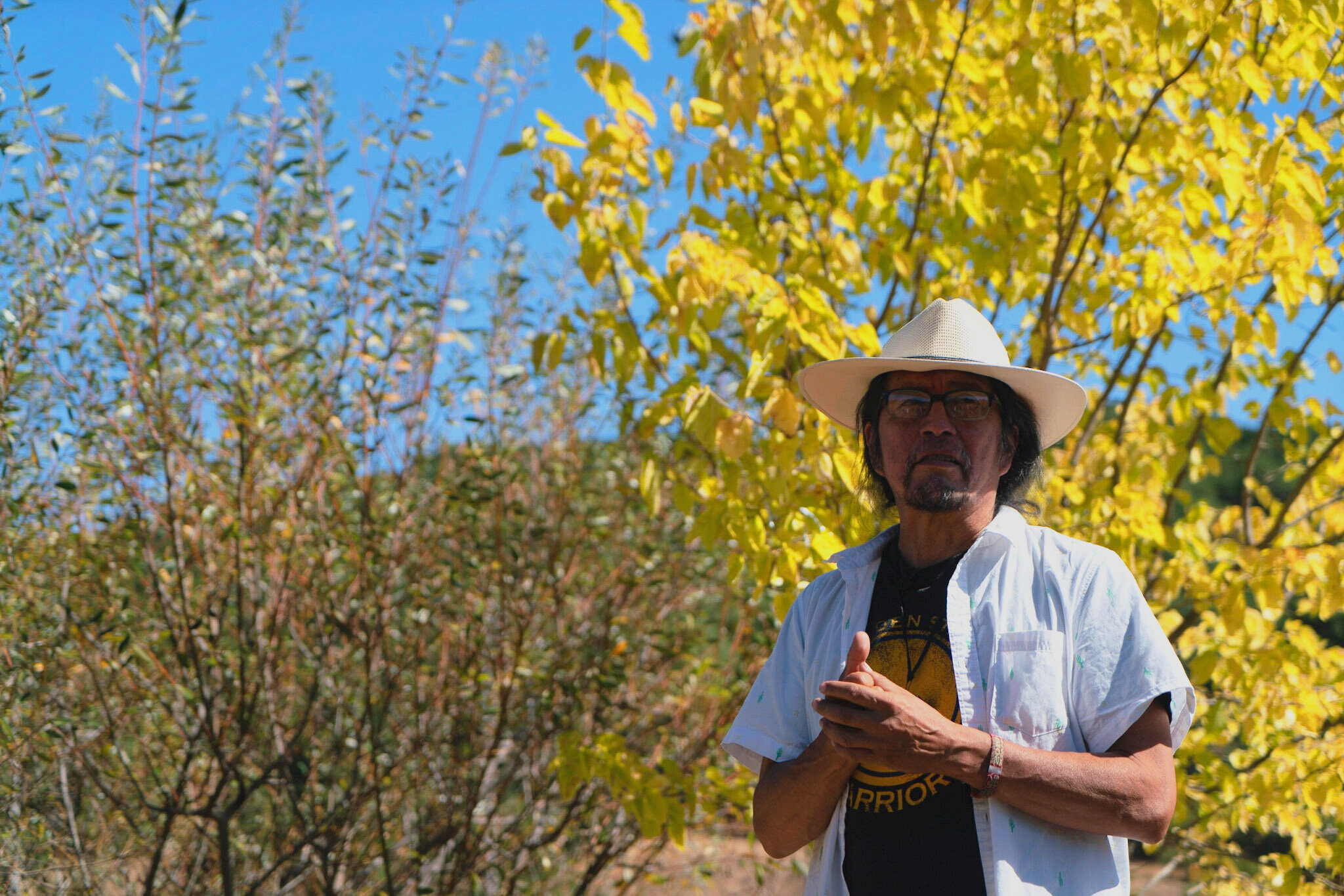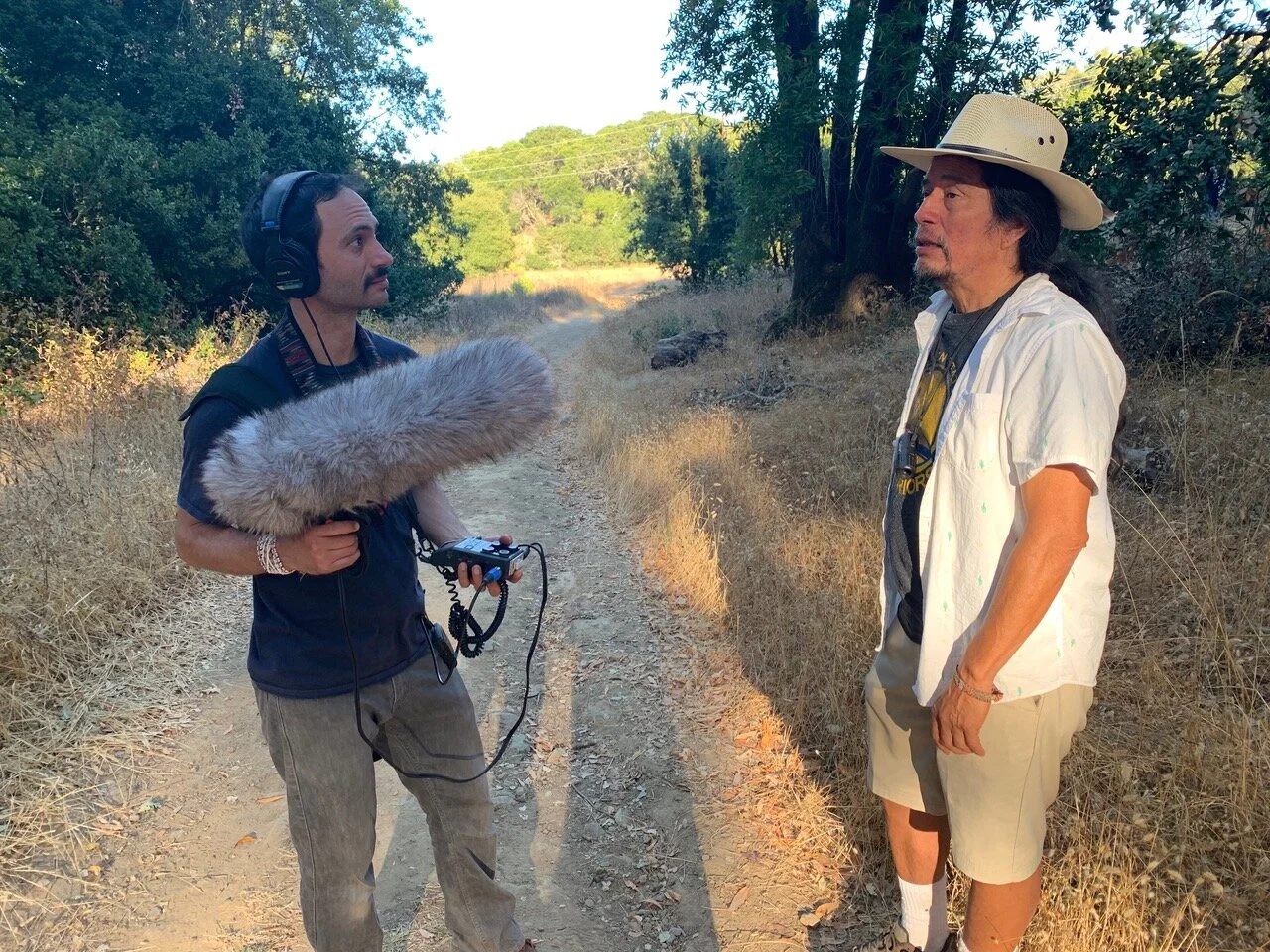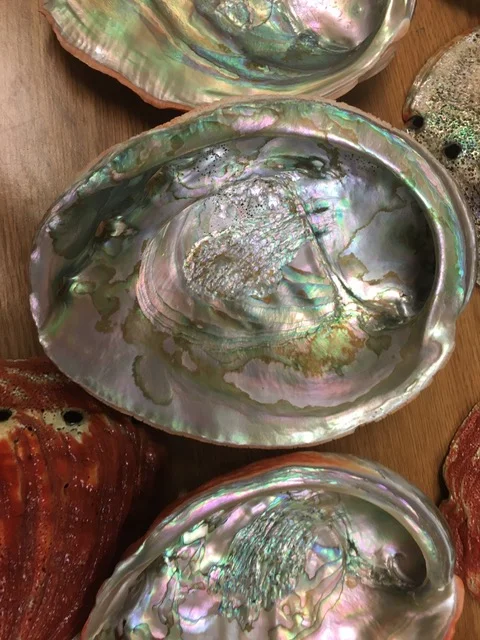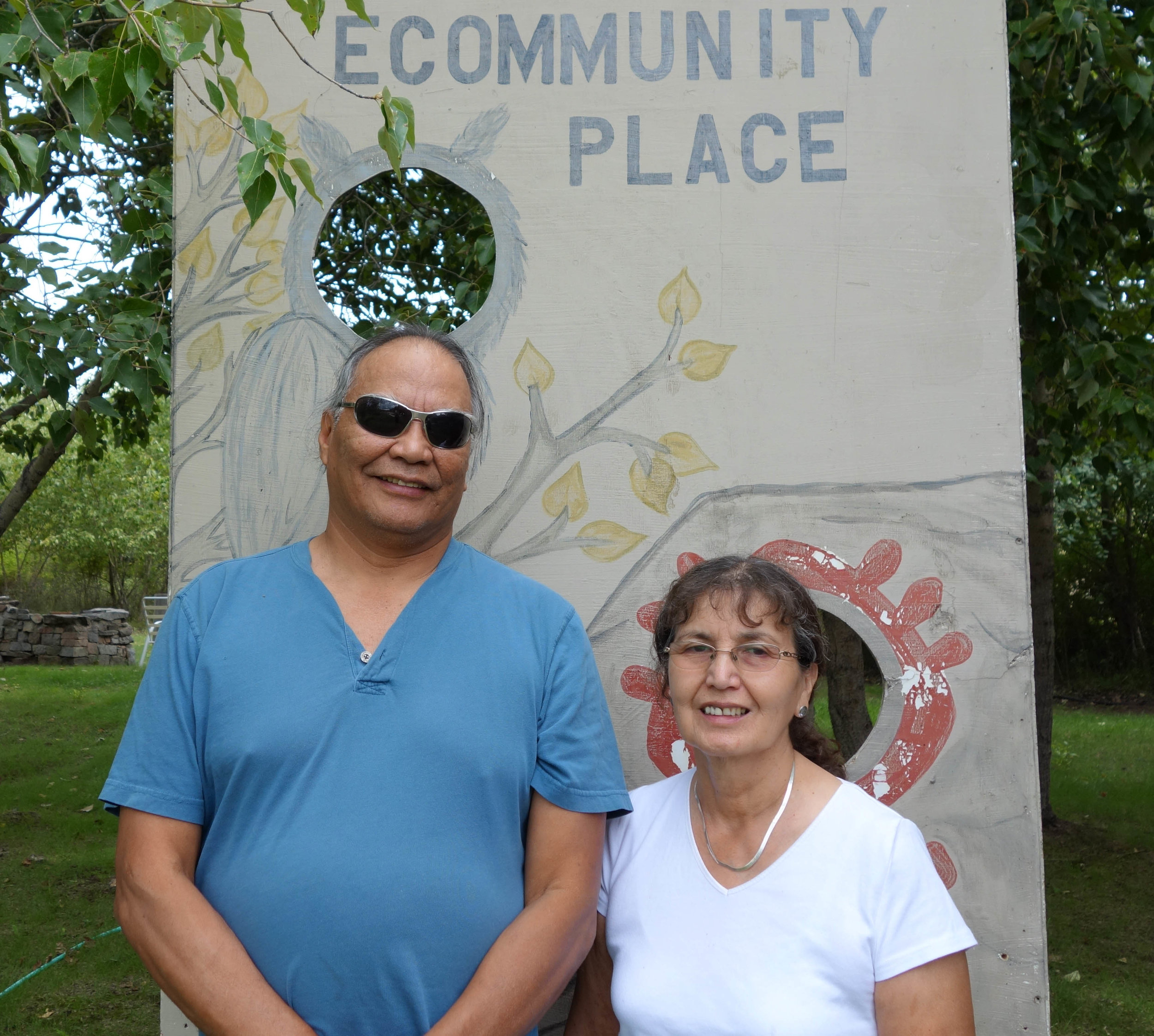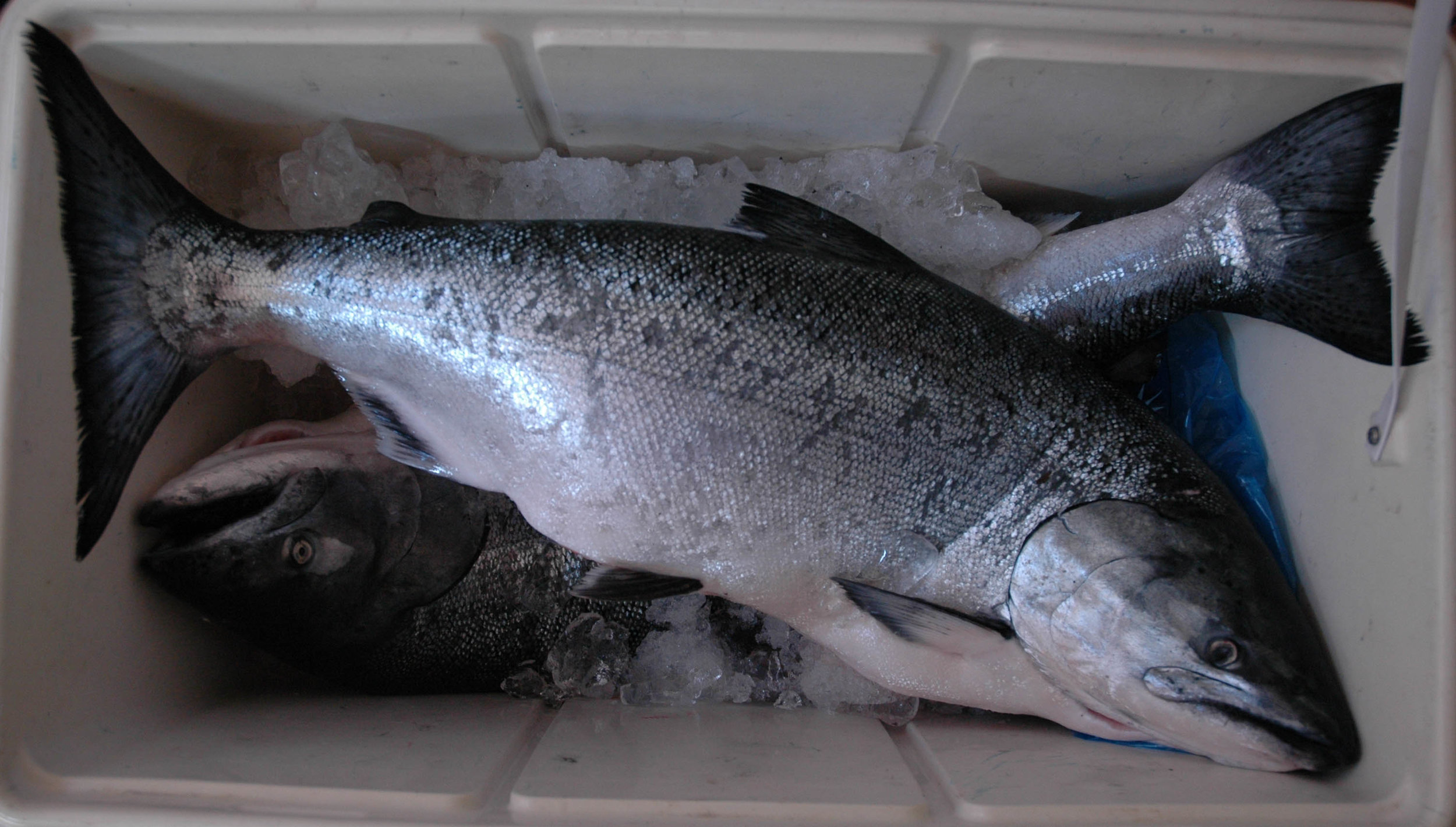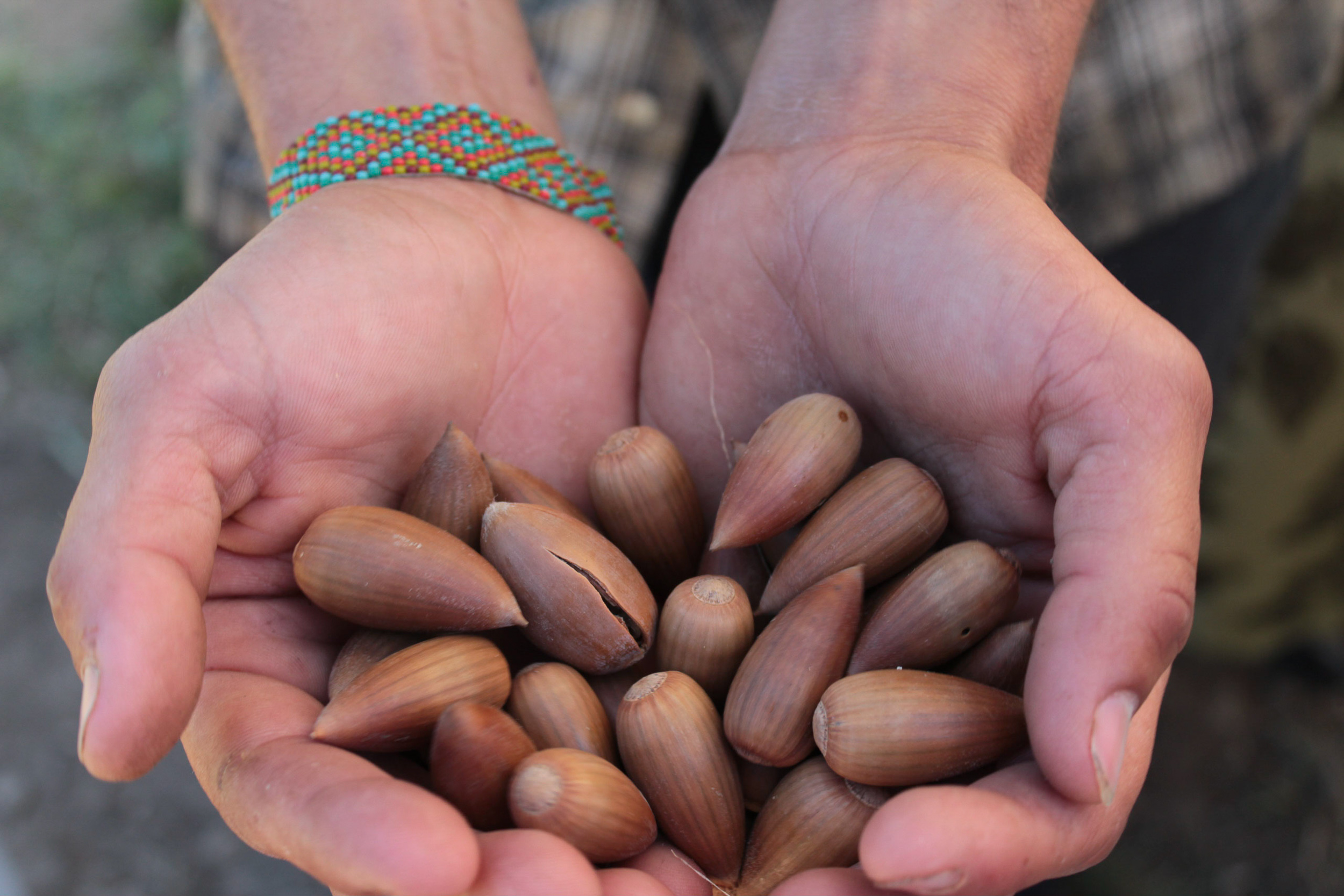Speaker: Shelley Buffalo | Air Date: October 8, 2021 | Run Time: 41mins | The Native Seed Pod: Season 3
Seed Rematriation with Shelley Buffalo
Tama Flint corn picked at the green stage, with its great variety of colors.
In this episode, Shelley Buffalo talks with host Melissa Nelson about the healing power of ancestral foods, feeding the community with rematriated crops and medicines, and her work with Meskwaki Food Sovereignty Initiative, Red Earth Gardens and Seed Savers Exchange. They also explore the power of art and the beauty of seeds.
This is the second of three episodes focused on Seed Rematriation, and is a co-production of The Cultural Conservancy and Native American Food Sovereignty Alliance’s (NAFSA) Indigenous Seed Keepers Network (ISKN). These episodes are part of a collection of Seed Rematriation media that we have co-produced with NAFSA and Rowen White.
This conversation was recorded on March 4, 2021.
“Just embracing your ancestral foods really does give you that connection to your ancestors. You know, the boarding school era and the dispossession of land era and all of that, all of that just washes away. In one season and in one bite of that food, you regain that connection and it’s just an incredibly beautiful and powerful thing.”
Tama Flint corn picked at the green (milky) stage being cooked over fire. The corn is processed by parboiling for about 15 minutes. This is the first step in processing for dry storage. Once cool, it is shelled from the cob and the kernels are dried in the sun over several days.
About Shelley Buffalo
Shelley Buffalo is an enrolled member of the Meskwaki Tribe, also know as the Sac & Fox of the Mississippi in Iowa. Shelley served her community as Meskwaki Food Sovereignty Coordinator and now offers consultancy for food sovereignty and local foods initiatives. She is an advocate for indigenous food ways, food justice, and rematriation. A mother of two sons, Shelley made a living as a house painter and artist before finding her passion in farming and seed saving.
The Meskwaki are unique in that their land based community is a settlement, not a reservation. Established in 1857 with the purchase of 80 acres near Tama, Iowa, the Meskwaki Settlement has grown to approximately 8,400 acres.
Ruth Buffalo (Shelley’s mother) and Charlie Old Bear (Shelley’s stepfather) spreading out the parboiled Tama Flint green corn to sun dry
Additional Resources
Seed Rematriation fundraiser for Native American Food Sovereignty Association (NAFSA) and Indigenous Seed Keepers Network
Indigenous Seed Keepers Network - webpage featuring a video filmed mostly in Meskwaki at the Great Lakes Intertribal Food Sovereingty Summit
CREDITS
Host/Writer/Director: Melissa K. Nelson
Producer and Editor: Mateo Hinojosa
Co-Producer: Sara Moncada
Special Co-Producer: Rowen White
Sound Recordist: Mateo Hinojosa, Cale Stelken
Sound Designer and Audio Engineer: Colin Farish
Photography: Cale Stelken, Shelley Buffalo, Mateo Hinojosa
Meskwaki Tama Flint corn picked at the green stage
Song Credits
Mohawk Women’s Dance
Sung by: Rowen White
Field Recording: Mateo Hinojosa
Opening Interlude
Drums, flute: Colin Farish
Cello: Premdip Ted Lasker
Closing Interlude
Colin Farish, Premdip Ted Lasker, & Alexandrea Oswalt
(c)(p)2021 Winds of the Muse ASCAP
Used with permission
All Other Music
Music by: Colin Farish
Sun-drying strips of winter squash in Meskwaki
This short film, highlighting the essence of the Seed Rematriation movement, is part of the collection of media that we have co-produced with NAFSA and that includes this podcast episode. It features Shelley Buffalo and many seeds that have been rematriated.



